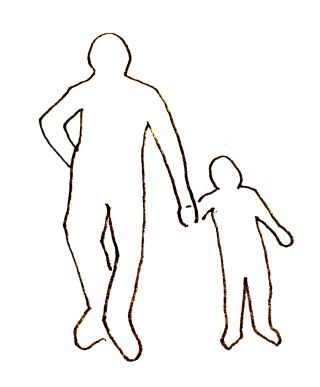Pornography
The Predator’s Greatest Trick
Wolf in creep’s clothing used trusted position to bait kids into porn.
Posted March 8, 2023 Reviewed by Gary Drevitch
Key points
- A middle-school teacher picked out kids for sexual exploitation.
- No employment screening can detect a secret life.
- Parental oversight of online contacts adds protection that schools might lack.

Parents trusted the Springside Chestnut Hill Academy near Philadelphia as a safe place for their kids. That’s what a predator counted on. The aptly named Andrew Wolf, 42, used his popularity as a teacher at this school to shield his exploitation of eighth-grade boys. It got worse when he found a partner.
Wolf taught math and coached baseball. No one suspected that in his private time, he wrote salacious stories on Internet porn sites about assaulting kids. Sometimes he described his own students. In communications with other pedophiles, he made his victims younger and tagged them with such phrases as “worth raping.” He’d boast about clandestine acts like masturbating into boys’ clothing during camping trips for them to discover later. According to the Philadelphia Inquirer, Wolf described molesting a 10-year-old boy by pretending to teach him about fitness. “He just trusts me, which is exactly why it’s illegal. Too easy to manipulate a kid.”
Maybe he made it all up. Maybe that’s as bad as it would have gotten if he hadn’t met his number-one fan in 2020.
Kray Strange, a 19-year-old college student, knew how to catfish. Together, Strange and Wolf turned Wolf’s access to boys into a shared erotic venture. Strange posed as a teenage girl to send graphic photos that hooked boys into quid pro quo while Wolf collected contact data for his students. In one communication with Strange, Wolf said he was going “to make a Google doc to help organize baiting my students.” They acquired a cache of selfies and videos of boys in arousing acts.
When FBI agents received a tip and investigated Wolf’s and Strange’s online exchanges, they located over 250 files depicting child pornography. Two dozen of these minors had been baited, and some were identified as Wolf’s students.
“A teacher facilitating the sexual exploitation of his young students is the stuff of parents’ nightmares,” said Jacqueline Maguire, special agent in charge of the FBI’s Philadelphia division. “Andrew Wolf and Kray Strange now admit taking advantage of vulnerable boys for their own vile gratification…We’d urge adults to remind the kids in their lives that not everyone is who they say they are online."
Under arrest, both men pleaded guilty to seven counts of manufacturing or attempting to manufacture child pornography and one count of conspiracy to manufacture child pornography. Wolf has been sentenced to 39 years in federal prison. Strange faces the same.
Generally, red-flag tip lists urge parents to check the credentials of anyone charged with caring for their kids. Yet in the case of teachers and coaches, they justifiably assume that a school has already done the necessary evaluations. However, when predators have solid credentials, lack a criminal record, and function well in their positions, the evaluation process might fall short. It won’t uncover a secret life.
But parents can approach this issue from another angle. They can monitor their child’s interactions, especially online. As daunting as this task might be, parents must take time to understand the cyber world. Predators anticipate that parents are too busy or clueless to do much more than check in now and then. (They’re not wrong.)
“Any boy in that school could have been a victim,” said federal prosecutor Kelly Harrell. “At best you can just be aware of what your kids are doing online.”
Parents should make sure their kids know they can confide in them if someone—even a trusted friend—asks them to do something that disturbs them. They need to know it’s safe to tell.
The predators’ greatest trick is to shield themselves with responsible positions that support their pose. They can then manipulate expectations to their advantage. Parents and guardians must set up clear rules about kids’ Internet use and remain firm, engage in regular monitoring, keep open communication, and discuss the reality of lures that predators use. Some kids will still follow the enticements, but others might be deterred.
References
De Becker, Gavin. Protecting the gift: Keeping children and teenagers safe (and parents sane). New York: Dial Press, 1999.
Fiorillo, V. (June 23, 2022). Fired teacher at elite Philly private school pleads guilty in child porn case. https://www.phillymag.com/news/2022/06/23/andrew-wolf-springside/
Kocturk, N. (2020). A retrospective study: According to online news, the victims, perpetrators and characteristics of sexual abuse at schools. Eurasian Journal of Educational Research, 20 (86), 115-134.
Shakeshaft, C. (2013). Know the warning signs of educator sexual misconduct. Phi Delta Kappan, 94(5), 8-13. http://dx.doi.org/10.1177/003172171309400503


